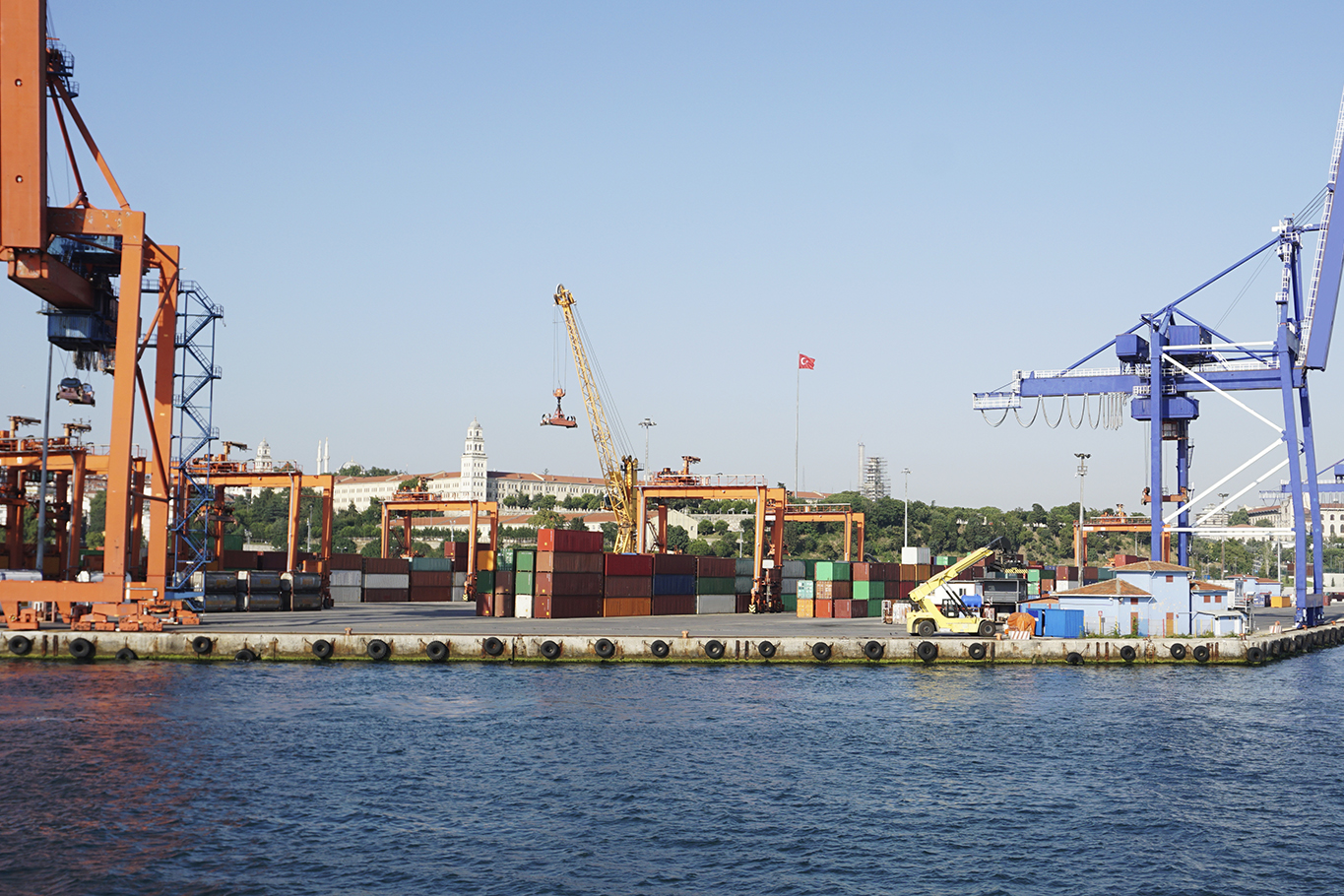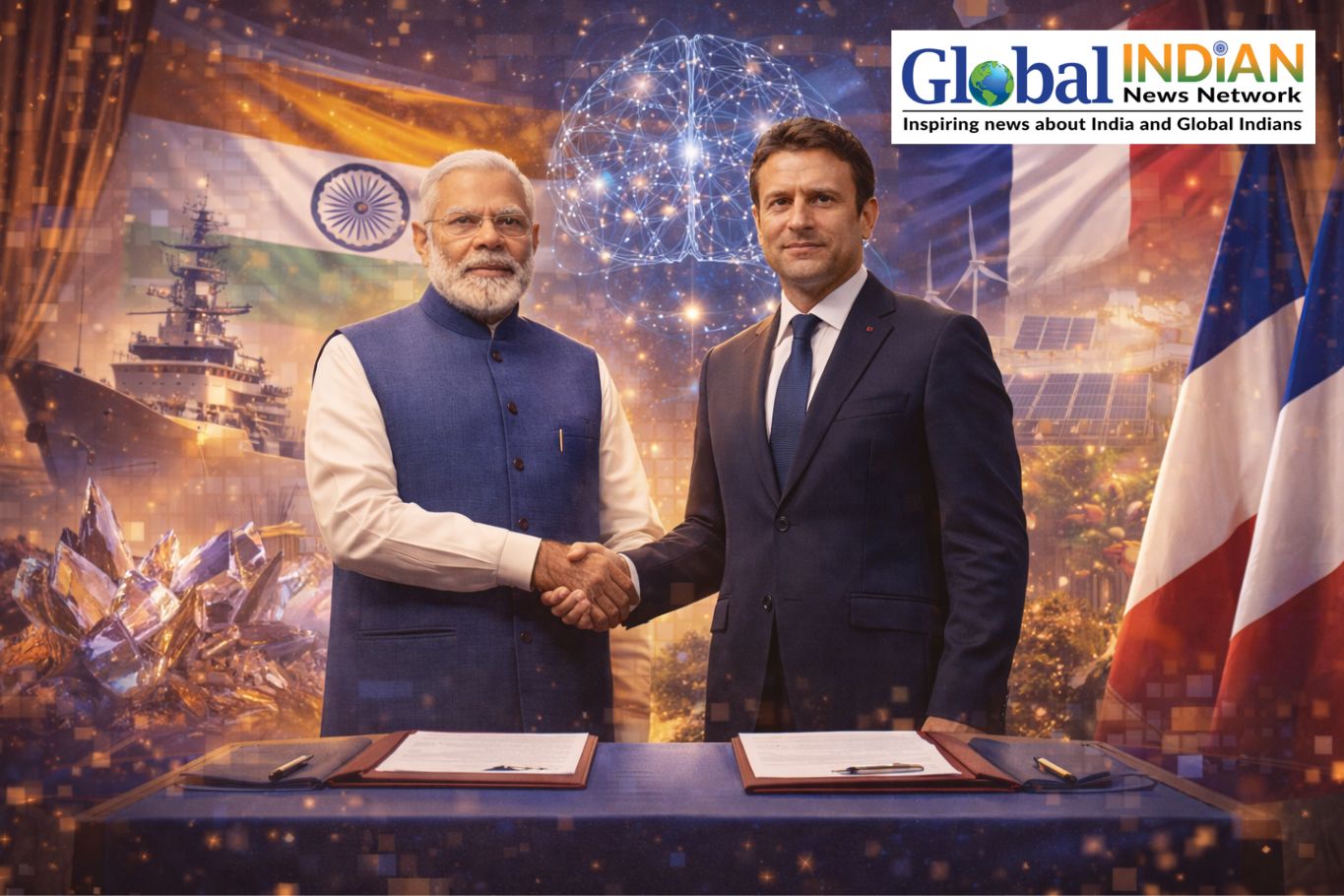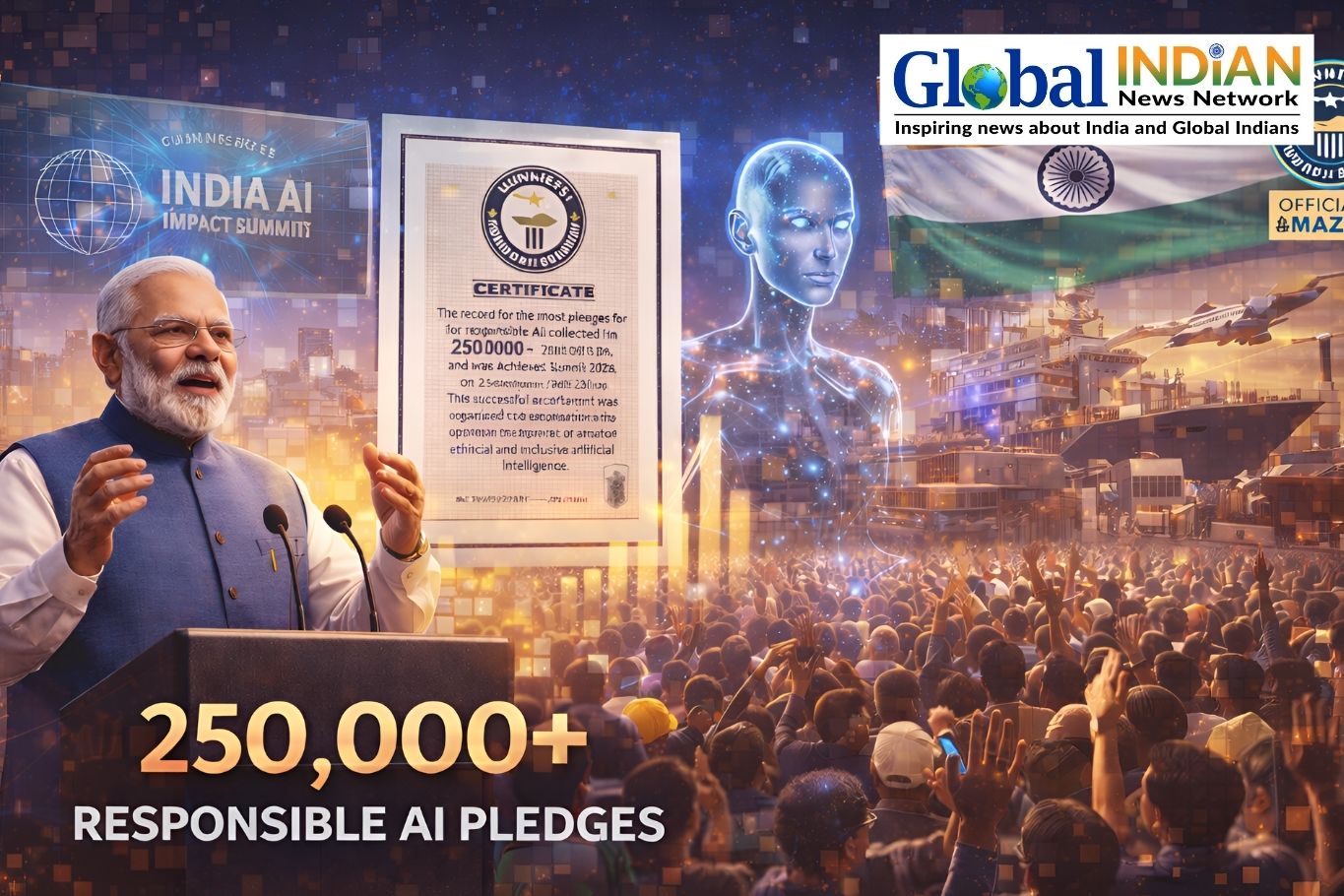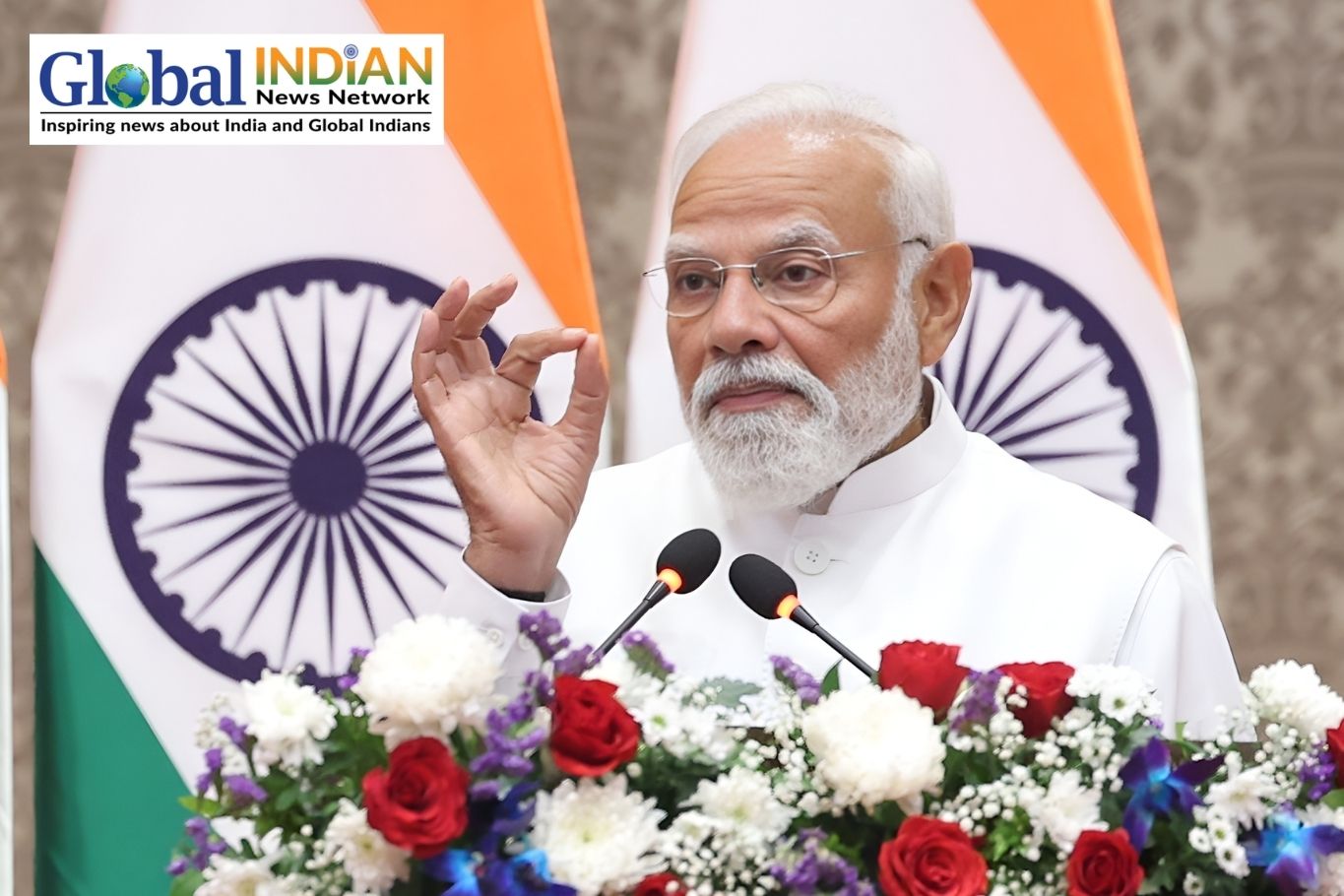
Prime Minister Narendra Modi has announced a $2.8 billion investment plan by 2047 aimed at developing and improving India’s ports while reducing shipping emissions. He revealed this during his address at the Global Maritime India Summit (GMIS) in Mumbai. “In the post-corona (COVID-19) era, the world needs reliable and resilient supply chains,” Modi said. “Today, a new world order is taking shape, and in this new order, the whole world is looking at India in a new light,” he emphasized.
Modi also laid the foundation stone for the $547 million Tuna Tekra, the all-weather deep draft terminal to be constructed under the public-private partnership model at the Deendayal Port Authority (Kandla Port) in Gujarat. The terminal, expected to emerge as an international trade hub, will handle next-gen vessels exceeding 18,000 twenty-foot equivalent units (TEUs) and will serve as a gateway for Indian trade via the India-Middle East-Europe Economic Corridor (IMEEC).
“Sagarmala Project”
“The government’s vision of ‘Ports for Prosperity and Ports for Progress’ is bringing transformational changes at the ground level,” the Prime Minister noted, adding that the mantra of ‘Ports for Productivity’ is also being encouraged.
The three-day summit is the biggest maritime event in the country, drawing business leaders and heads of shipping companies from Europe, Africa, South America, Asia (including central Asia, the Middle East, and the BIMSTEC region) to Mumbai. This event is expected to attract investments into the maritime sector.
Additionally, the opening of the Vizhinjam International Seaport in Kerala, India’s first mega transshipment container terminal, has made India a focal point for some of the world’s largest container ships. It is strategically located near key shipping routes, including those connecting the Suez Canal and the Malacca Strait, at a time when the world’s attention on the Indian Ocean Region is growing.
As India focuses on modernizing its shipping industry by building state-of-the-art ports, large containers and cargo vessels will be able to dock at Indian ports, boosting investments as the country positions itself as the world’s factory with the “Make in India for the world” initiative.










1 Comment
This is a topic I’ve been curious about. Thanks for the detailed information.